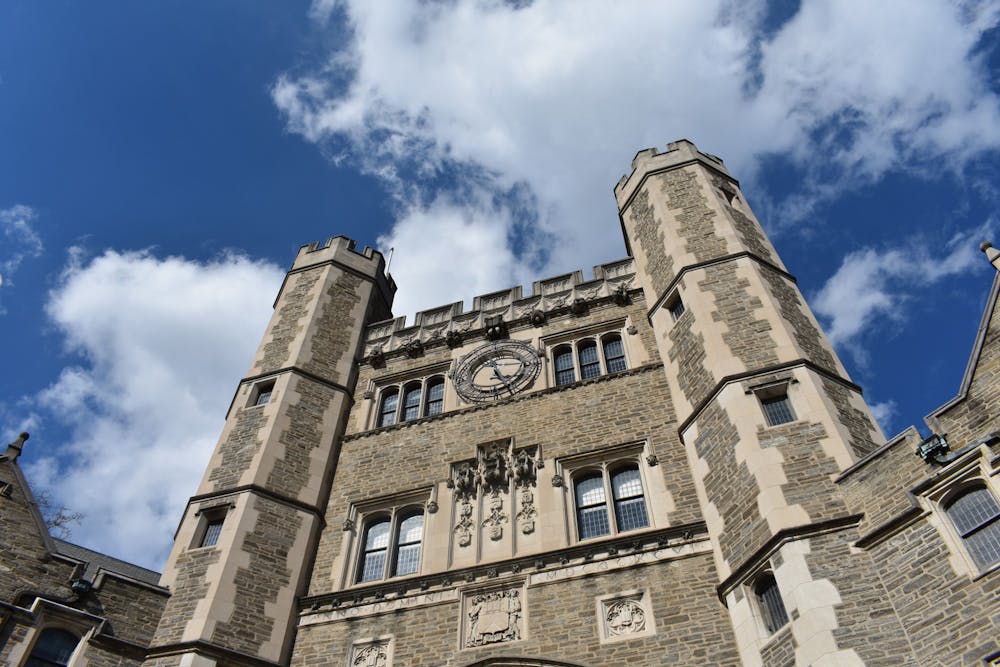The following is a guest contribution and reflects the author’s views alone. For information on how to submit an article to the Opinion Section, click here.
In Dean Dolan’s Saturday email to students announcing new COVID-19 protocols, the following bullet point was included: “Student social gatherings with more than 20 people are prohibited until our cases decrease.” This sentence spurred immediate discussion amongst several of my friends: What counts as a “social gathering”? Are club meetings, for example, “social”? Are extracurricular activities led by a faculty member “social” or academic?
On Sunday, a series of updates were posted to the University’s Instagram story in an apparent follow-up to Dolan’s email. On the subject of gatherings, the following was offered regarding the earlier, vague statement: “Student gatherings outside of the classroom or for academic reasons proctored by an instructor with more than 20 people are prohibited until our cases decrease.”
As a linguistics concentrator currently doing research on both syntax (how words are structured in sentences) and the ways our minds process ambiguous language, I find that there are multiple ways in which this announcement fails to be clear to its audience.
I don’t bring this up to be pedantic about grammar or “proper usage.” In fact, I generally abhor such nitpicking. I bring this up because, for the sake of public health, the University must be precise in its communications, and this is only the latest example of its failure on that front — a failure which ultimately harms students.
To illustrate, here are some examples of the many ambiguities in the second announcement. In the clarification message, the word “gatherings” can be read as being modified by two phrases: “outside of the classroom” and “for academic reasons proctored by an instructor.” This leads to a possible interpretation that “student gatherings” that are “outside of the classroom” are prohibited, and gatherings “for academic reasons proctored by an instructor with more than 20 people” (e.g. classes of over 20 students) are also prohibited. Given that classes with more than 20 students are still in-person, this does not seem to be what the University actually meant — but the syntax can easily be understood that way.
The sentence also features several structures that are notorious for being hard to parse — for instance, center embedding, in which multiple complicated descriptions are stacked between a subject and a verb. Here, the subject “student gatherings” is far removed from the verb “are prohibited,” because of the many intervening phrases. It’s hard to know which of the preceding phrases each new phrase applies to, and it’s hard to keep the subject in mind by the time the verb arrives. Confusion results, as predicted. Annette Lee ’23 described the announcement to me as “unnecessarily confusing” and continued that it “could’ve been conveyed in a much clear[er] manner.”
The technical details of the announcement’s ambiguity, however, are secondary to the fact that it is ambiguous in the first place. If we are to bring COVID-19 cases back down to a safe level, these new policies need to work. They will not work if they are this easy to misinterpret.

Poorly defined regulations can cause not only health consequences but also disciplinary consequences for students. As we’ve seen in recent months, the University applies obscenely harsh punishments to students accused of violating the Honor Code and those who incurred social contract violations while attempting to flee sexual misconduct. If students unintentionally violate whatever the intent of this new rule is, the disciplinary response will likely be severe. But if one claims that ignorance of the law is no excuse, then the law should not be written so unclearly that a reasonable person would have no choice but ignorance. With such high stakes, it should be immediately and obviously clear what is and is not permitted.
The University’s method of communication regarding these updated guidelines was also lacking. Instagram Stories are not an effective method of outreach for critical updates. Not every member of the University community uses Instagram, and even for those who do, Stories disappear after 24 hours. If a student was focused on the lead-up to finals or their Thanksgiving break and did not check Instagram for a day, they would have missed the post entirely. If a club leader wanted to ensure a meeting’s compliance by double-checking the wording of the announcement, they wouldn’t be able to reference it later.
Vice President Calhoun’s follow-up email — sent several days later, on Tuesday — does do a better job of explaining the regulations on student gatherings, but seems only to have been prompted by student confusion. It isn’t a good tactic to leave students in the lurch for multiple days, during which more unintentional COVID-19 spread or rule violations could occur, until enough of them request more information. From the outset, these policies should have been drafted in both thorough and readable ways.
Even assuming that people can figure out the gist of what the University meant to say, the lack of careful communication here is indicative of a troubling dynamic. The University, throughout the pandemic, has put the burden of interpreting poorly explained and poorly worded policies on students. Yet, if we inadvertently misunderstand an objectively confusing rule due to the University’s inconsistencies, we are the ones risking major health and disciplinary consequences. The University’s communication around COVID-19 needs to improve immediately for us to have the best chance at a safe college experience.

Molly Cutler is an Assistant Editor for The Prospect and a TV & Shows Critic who often covers podcasts and internet art. She can be reached at mcutler@princeton.edu or on Twitter at @clarinautilus.








